In 2015, we have compiled a list of our most viral posts on Facebook, as part of efforts to understand the humanist community better. Here’s a second round of compilation, based on the number of views per post.
[Read more…]2018 Asian Humanism Conference
The 2018 edition of the Asian Humanism Conference (AHC) in Kaohsiung has just concluded, following its two-day run from 29 to 30 Dec 2018. The event was hosted by the Humanistic Pastafarianism in Taiwan, sponsored by the Young Humanists International (YHI), and attended by delegates across regional humanist groups, representing India, Malaysia, Philippines, Singapore, as well as Taiwan. Together, these groups form part of the Asian Working Group under YHI. The Humanist Society (Singapore) was represented by Executive Committee Member, DJ Tan.
PSYCHOLOGY TALK II: OF AGENTS, MODELS AND DETERMINISTIC CHAOS

Last Saturday saw the second segment of Humanist Society Singapore’s Psychology Talk Series. Entitled: “Agent-Based Modeling Game Theory”, the talk started out with participants filling out one of two questionnaires, picked out at random. This would provide the data points for the Ultimate Game afterwards.
377A: “Traditional Values”?
The AWARE takeover saga is approaching its 10th year anniversary. In March 2009, the Association for Women for Action and Research (“AWARE”), a not-for-profit NGO, was taken over by a group of women largely from the same Christian church (the Church of Our Saviour or “COOS”). The takeover was supposedly prompted by a perception that AWARE had become “pro-lesbian and pro-homosexual”, and this was against the values of the all-Christian women who took over.
World Humanist Day – Inter-Belief in a Secular Society
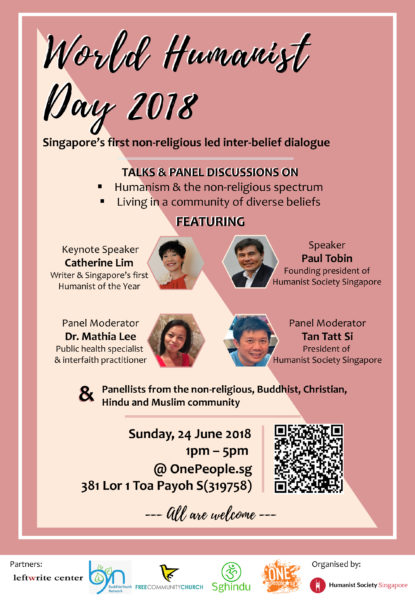
Celebrating World Humanist Day, the Humanist Society (Singapore) is organising a panel discussion on Sunday, 24th June 2018, 1-5pm, at OnePeople.sg.
Register here!
A heart-thumping session
Humanists value the only life we have. Sometimes just a few critical minutes can mean the difference between life and death. On Apr 28, 2018, a group of women and men responded to our call for the Emergency Preparedness Workshop at People’s Association HQ on King George’s Avenue.
The workshop began with a theory lesson introducing us to the human anatomy and the basics of cardio-pulmonary resuscitation and automated external defibrillators (AED). The class was lively with enthusiastic questions and laughter as the trainer dispelled many TV-inspired myths about the practice of CPR and AED.
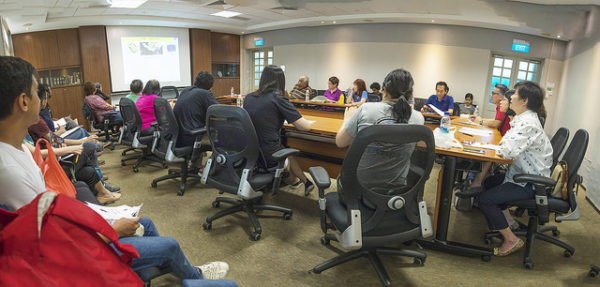
Emergency preparedness lesson
After the break, we proceeded to the practical session, breaking up into smaller groups led by individual trainers. It was a very different feeling to get our hands on the training mannequin and AED set, taking turns to perform chest compressions and ventilations (commonly known as mouth-to-mouth).
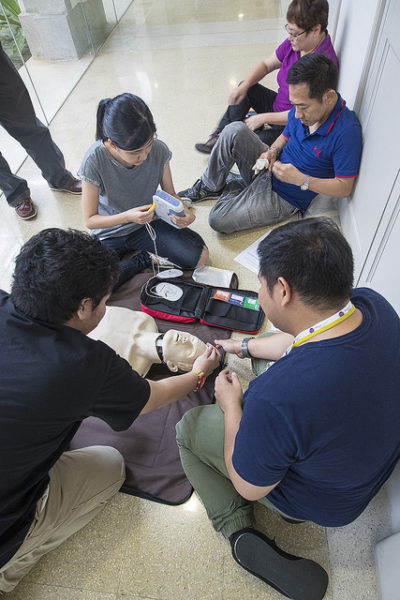
CPR and AED practical session
The course was provided free of charge by PA as part of its emergency preparedness initiative. Certified trainees are encouraged to participate in community volunteer programmes to keep their skills fresh and current. If you get the opportunity to participate in a course like this, we cannot recommend it enough. Someone’s life could depend on you one day.
Darwin Day 2018 – A Celebration of Natural History
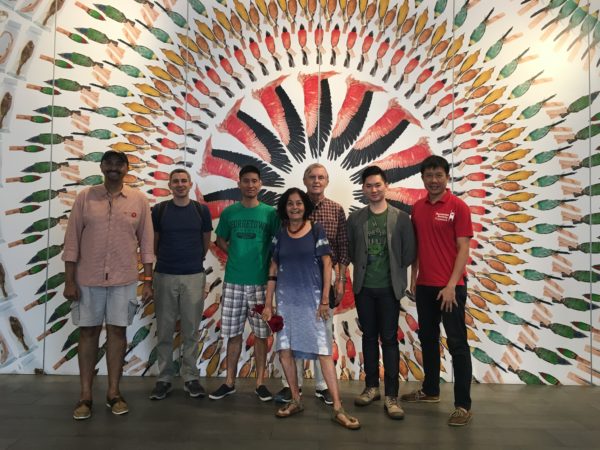
On 22 Feb 2018, the Humanist Society (Singapore) organised a visit to the Lee Kong Chian Natural History Museum to commemorate the birth of Charles Darwin.
Migrant Cultural Show – A big “Thank you !”
Migrant Cultural Show, 7 January 2018, Syed Alwi Road. Pictures courtesy of the organizers.
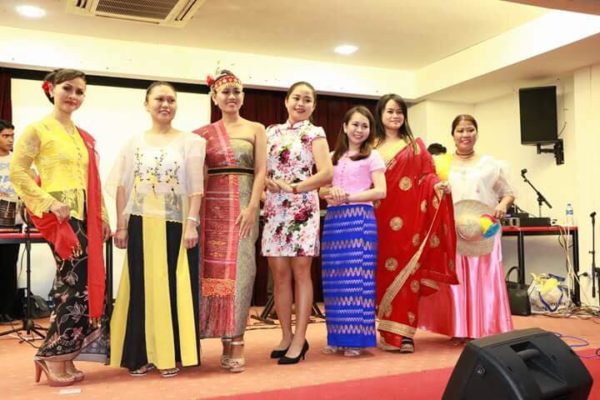
The Humanist Society (Singapore) was invited to the Migrant Cultural Show that took place two Sundays ago. Tatt Si, our president was one of the VIPs , along with Ms Jacqueline Loh, the chief executive of Aidha; Mr Shivaji Das, founder of Migrant Worker Poetry Competition; and TWC2 executive committee member Debbie Fordyce.
Interfaith Memorial Service for Rev Yap Kim Hao @FCC
(TattSi walked to centre stage, lit a candle, and turned to the mic)
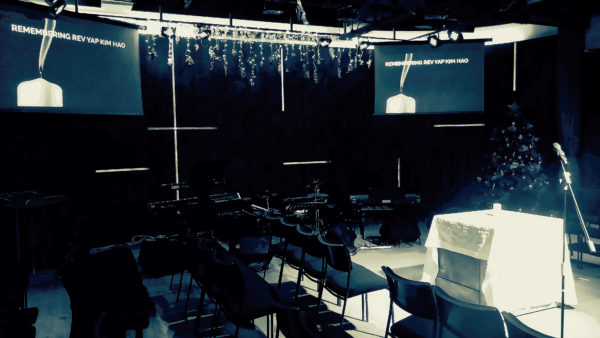
“Hi everyone, I’m TattSi, and I’m from the Humanist Society.
I just want to reassure Mao that while you knew Rev Yap only for a short while, you still beat me in that department. I never met Rev Yap, and only knew him for less than a year, on Internet, on Facebook.
How to herd cats? The humanist experience in Singapore
As the saying goes, gathering atheists is like herding cats. Although the number of groups dedicated to the non-religious is growing worldwide, it’s still a hair-pulling experience organising large groups of atheists together (or any other type of non-religious people).





